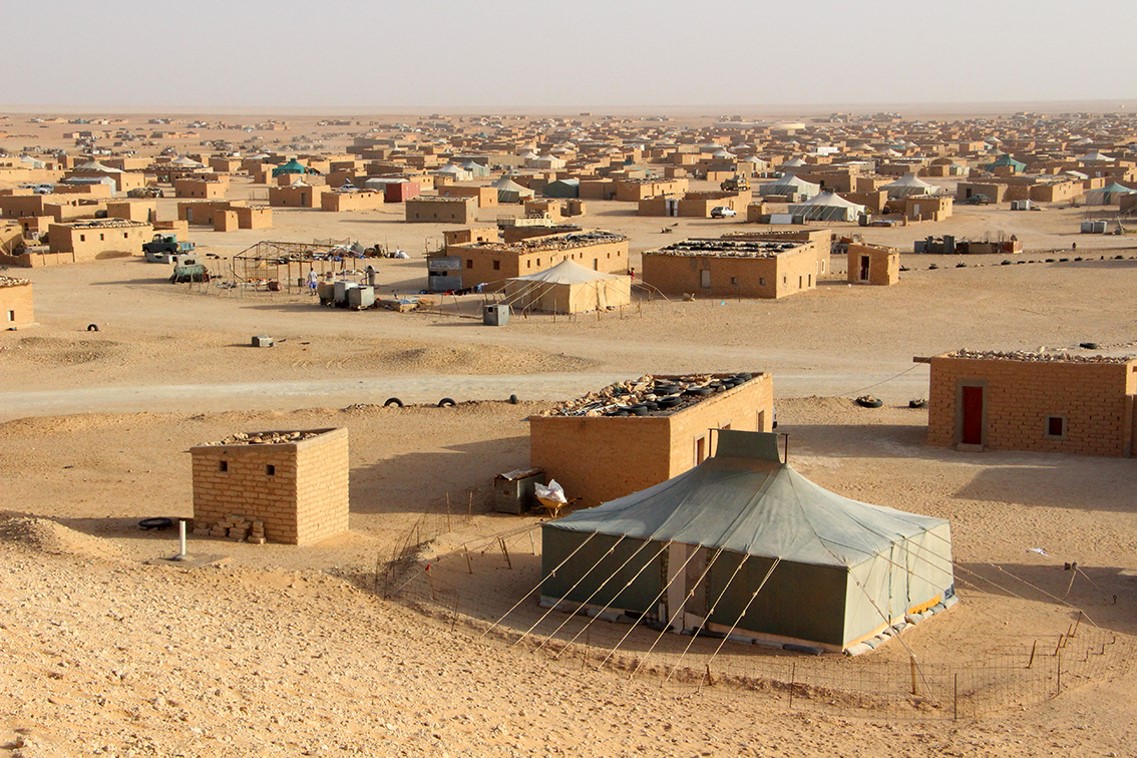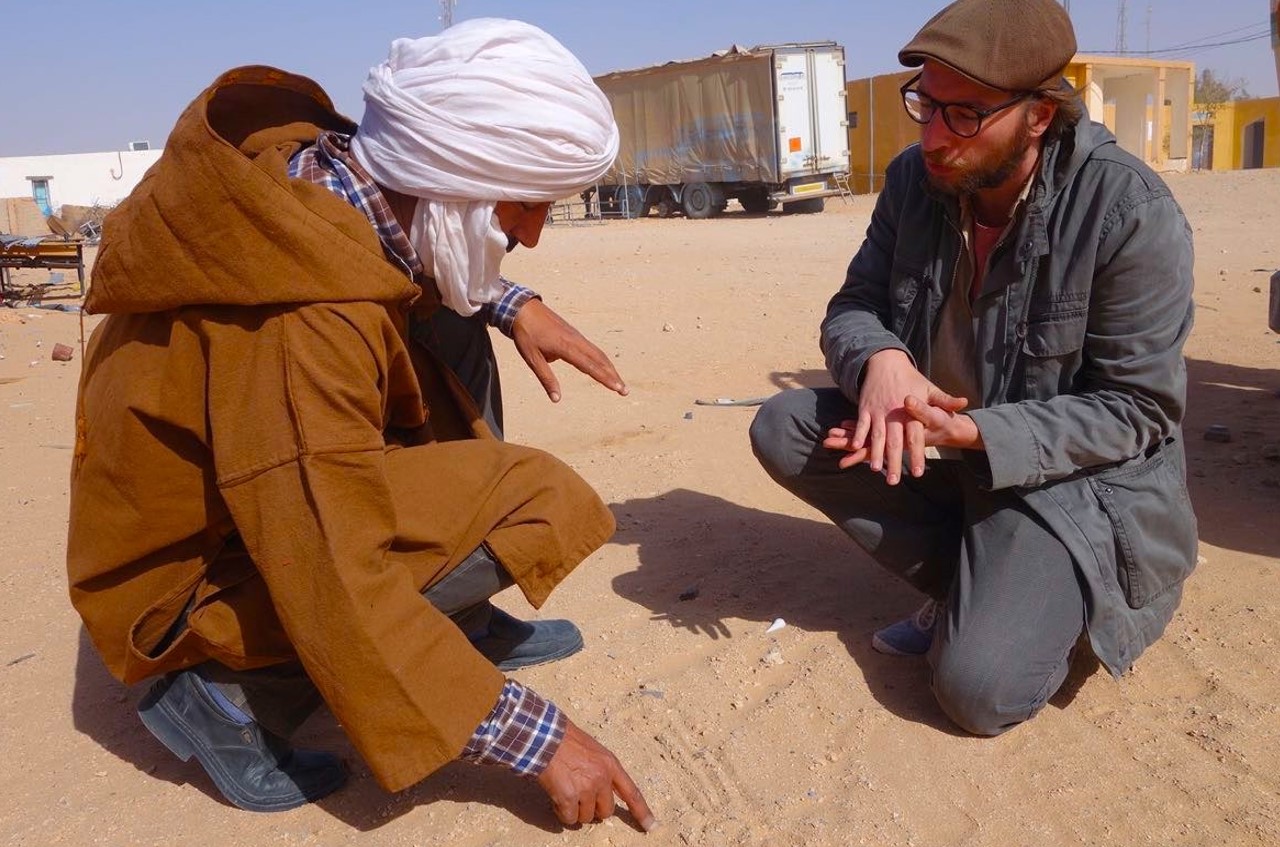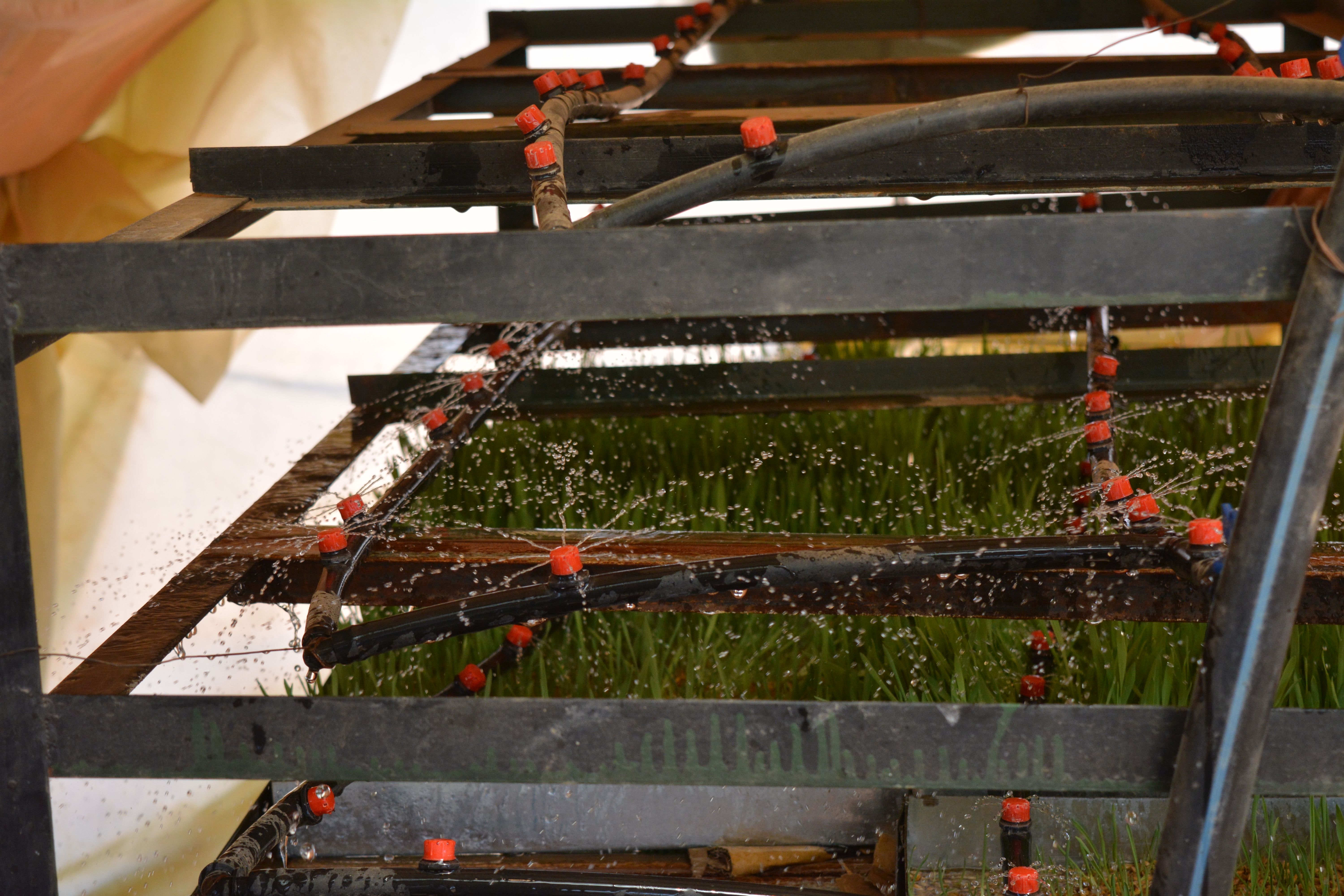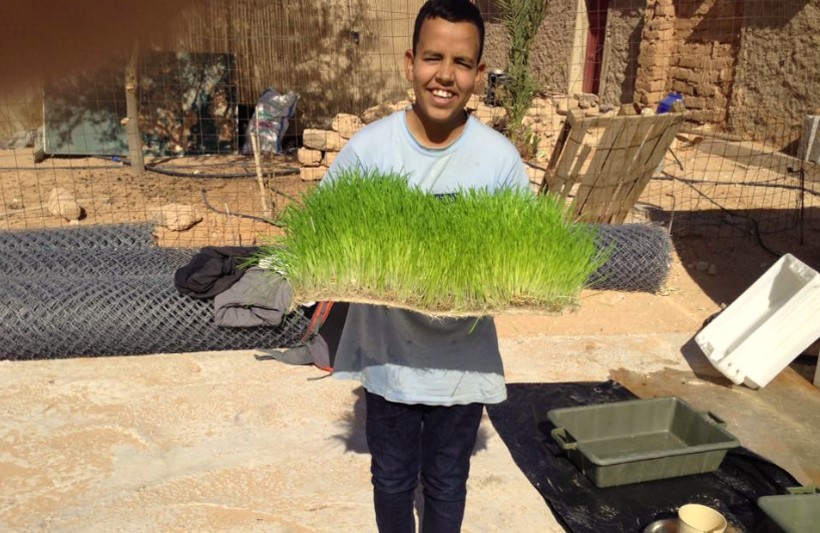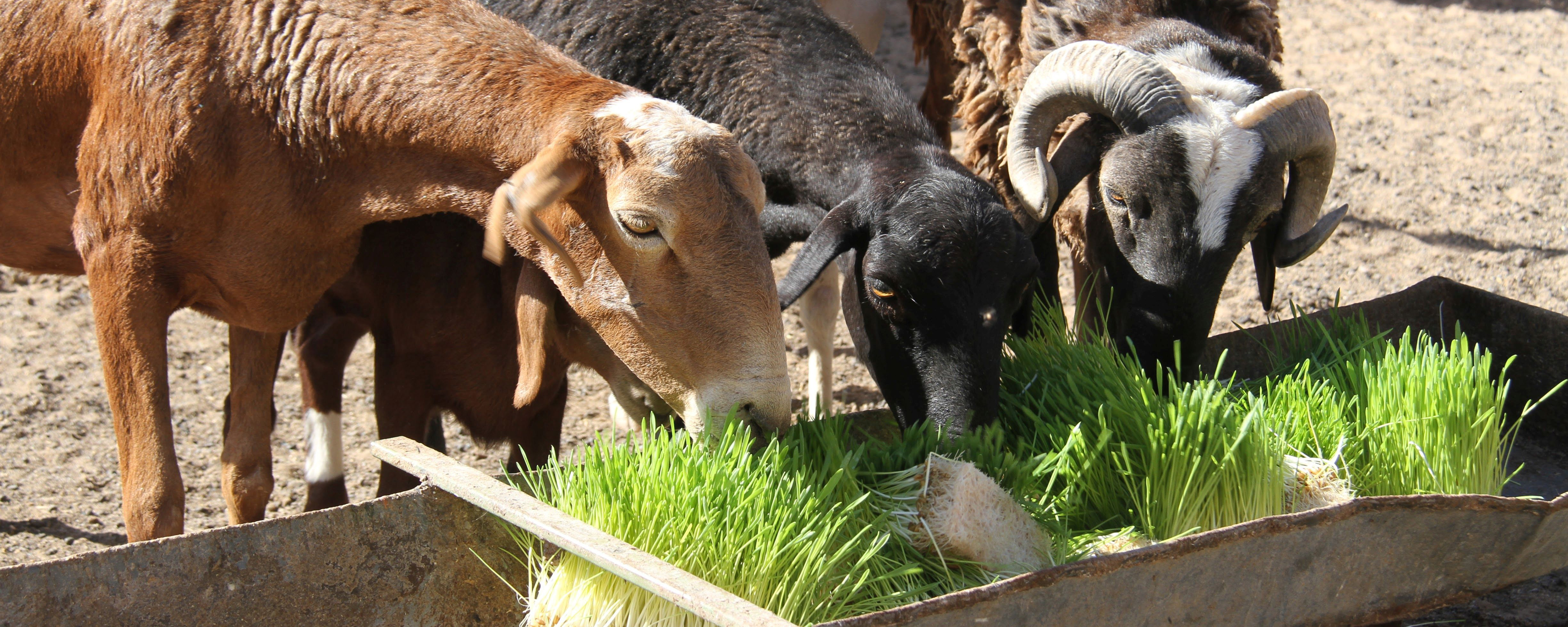
GreenUp Sahara – Hydroponic system for growing vegetables in the desert

Vegetables from the desert
Challenges
In the Algerian Sahara, over one hundred thousand people are living in refugee camps. They are displaced from the Western Sahara, which has been fought over for more than 40 years. The people are exposed to extreme climatic conditions that make traditional agriculture impossible. There is a lack of food and animal fodder, undernourishment and malnutrition are widespread. Providing for the people is becoming increasingly difficult and the Sahrawis need a sustainable and long-term food supply.
In cooperation with the World Food Program (WFP), the Algerian agricultural engineer Taleb Brahim has developed a water-saving hydroponic system that enables the cultivation of barley grass as animal fodder. This gives the population better access to meat and milk from the goats and camels. The technology has already been successfully replicated in Jordan and Chad. Hydroponics is very productive and requires 90 percent less water than soil-based cultivation.
Vision
Hydroponics for vegetable cultivation could secure the long-term nutrition of hundreds of thousands of people and combat malnutrition. People living under harsh environmental conditions are empowered to provide for themselves and overcome dependency behind. The pilot project could be applied in other regions of the world and contribute to the fight against climate change, world hunger and the causes of flight.
Development of a hydroponic system for cultivation of vegetables
The integrated system focuses on efficient water reuse for the cascading cultivation of vegetables and animal feed. Based on the success of WFP's hydroponic barley cultivation, we want to develop a hydroponic concept that makes the cultivation of salad, vegetables and herbs in desert regions possible.
According to "low tech instead of high tech", the inhabitants of the refugee camps should be able to build and operate hydroponics using local materials in a cost-effective and water-saving way. The hydroponics concept remains efficient even under extreme climatic conditions and could be applied worldwide.
Current project: Development of a hydroponic nutrient solution
Together with local stakeholders, Fraunhofer wants to further develop the hydroponic barley system in order to enable the cultivation of vegetables and herbs. This requires a hydroponic nutrient solution and since commercial hydroponic fertilizers are difficult to access for the people in the refugee camps, the biggest challenge is to produce such a nutrient solution at the lowest possible cost using only the locally available scarce resources.
In a current project, Fraunhofer scientists are investigating the suitability of residual materials, such as blood and bone meal from animal husbandry, for use in hydroponic systems, as well as the necessary or possible processing steps for the residual materials. In addition to the concentration of the individual plant nutrients, microbial parameters also play an important role due to hygiene requirements.
In 2021 the team plans to conduct plant trials at Fraunhofer UMSICHT. Here, the nutrient solutions created will be tested for their suitability for hydroponic vegetable cultivation.
Successful crowdfunding campaign
For the initial financing of the project idea, the Fraunhofer Institutes joined forces with the Fraunhofer Foundation to look for sponsors via the first Fraunhofer crowdfunding campaign.
The project team would like to thank over 200 supporters!
Collaboration with the United Nations World Food Programme WFP
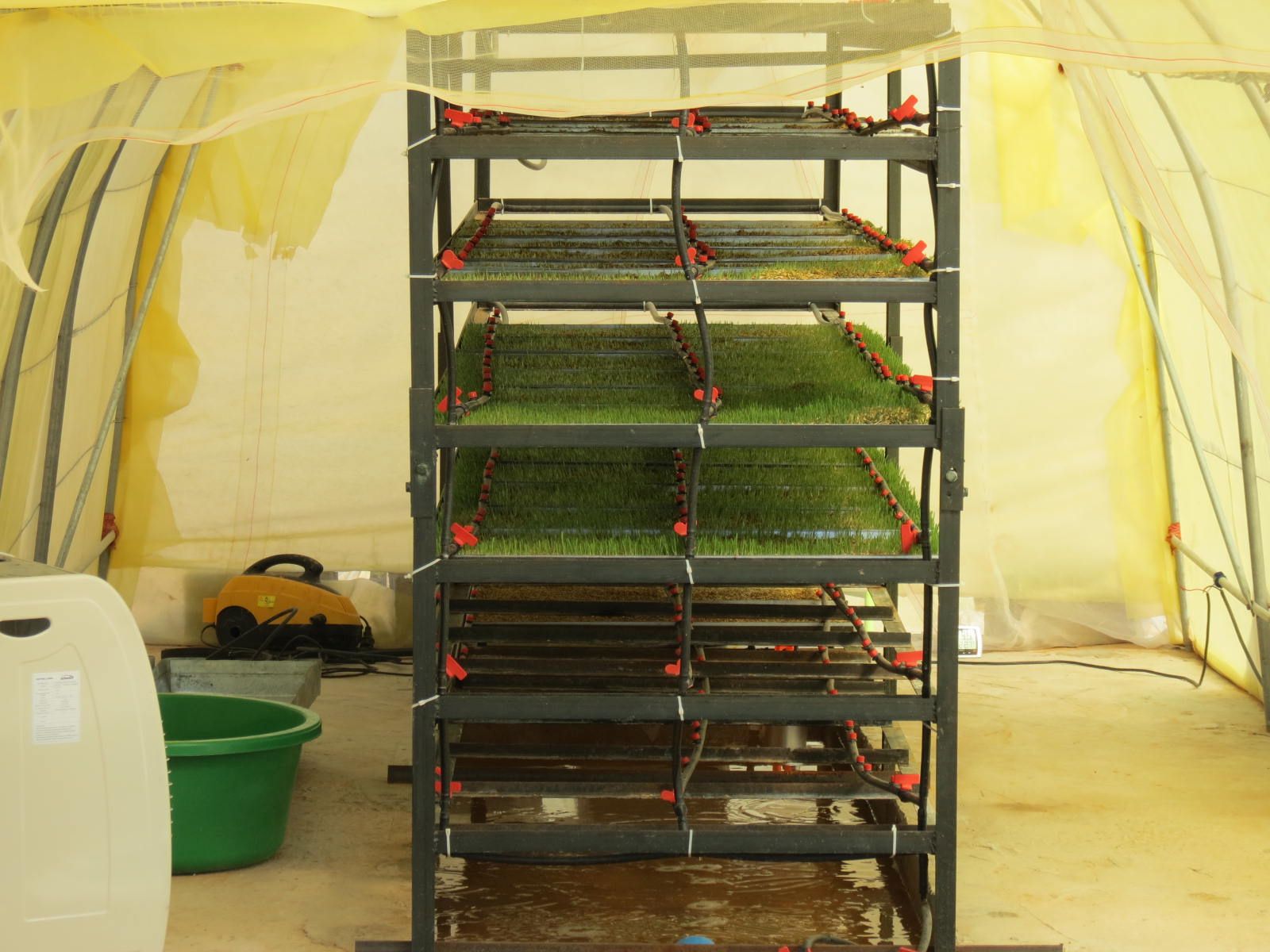
In December 2017, IGB researcher Marc Beckett visited the Sahrawi refugee camps in the Algerian desert. The visit served as a first analysis of potential activities. Since then Fraunhofer frequently exchanged with the colleagues from the World Food Programme and engineer Taleb Brahim in order to further develop the hydroponic culture systems. The initial contact was established via Fraunhofer Venture.
With the results and experience from GreenUp Sahara, Fraunhofer IGB is contributing to the development of the global hydroponics platform H2Grow, a network and knowledge platform launched by the World Food Programme.
 Fraunhofer Institute for Interfacial Engineering and Biotechnology IGB
Fraunhofer Institute for Interfacial Engineering and Biotechnology IGB